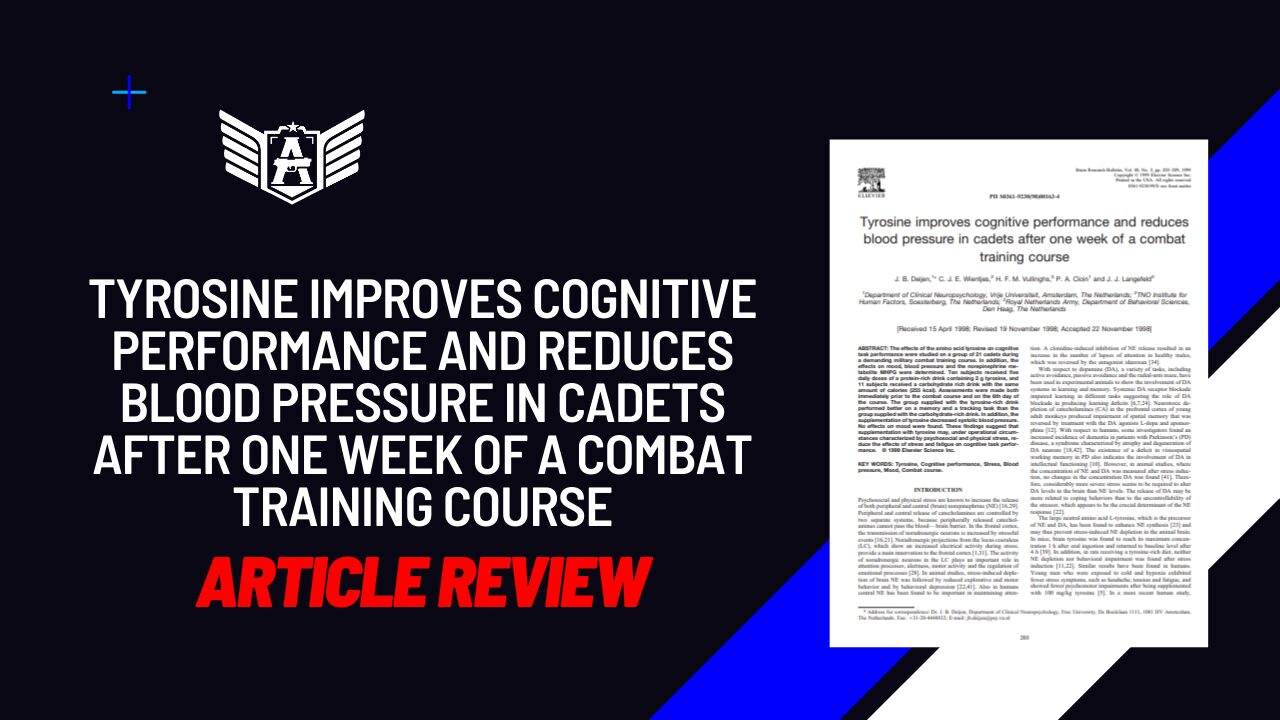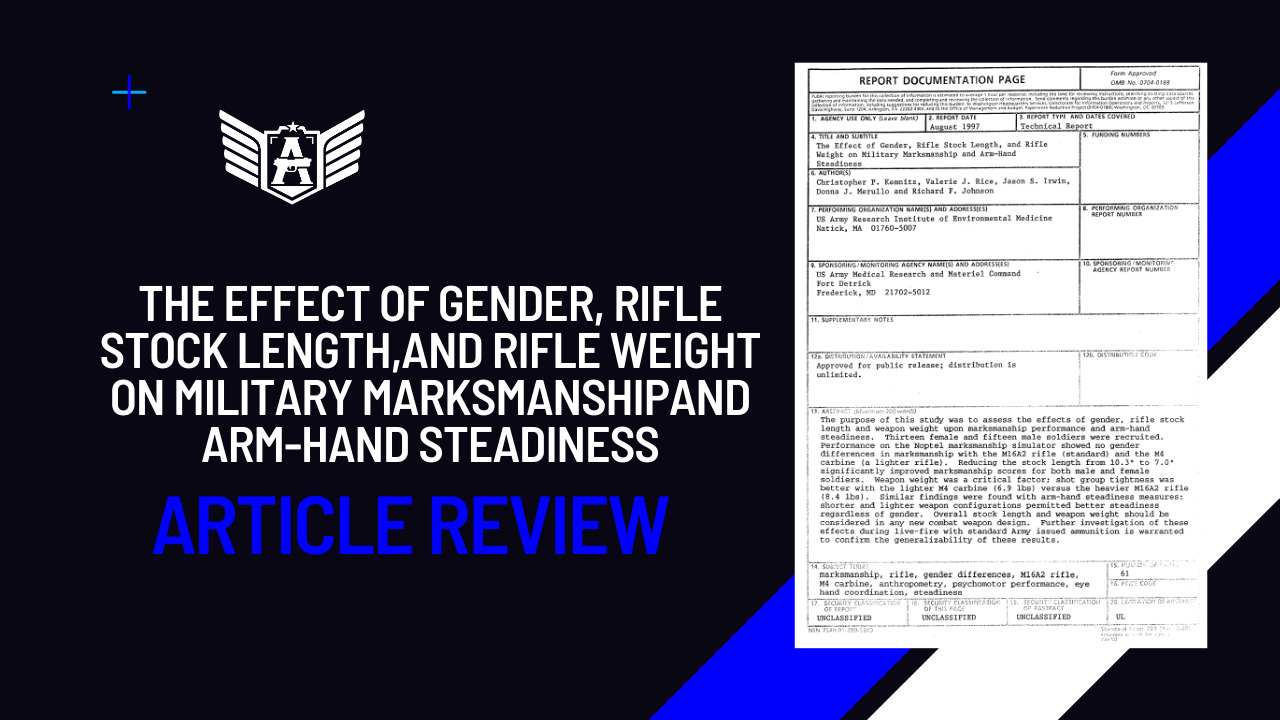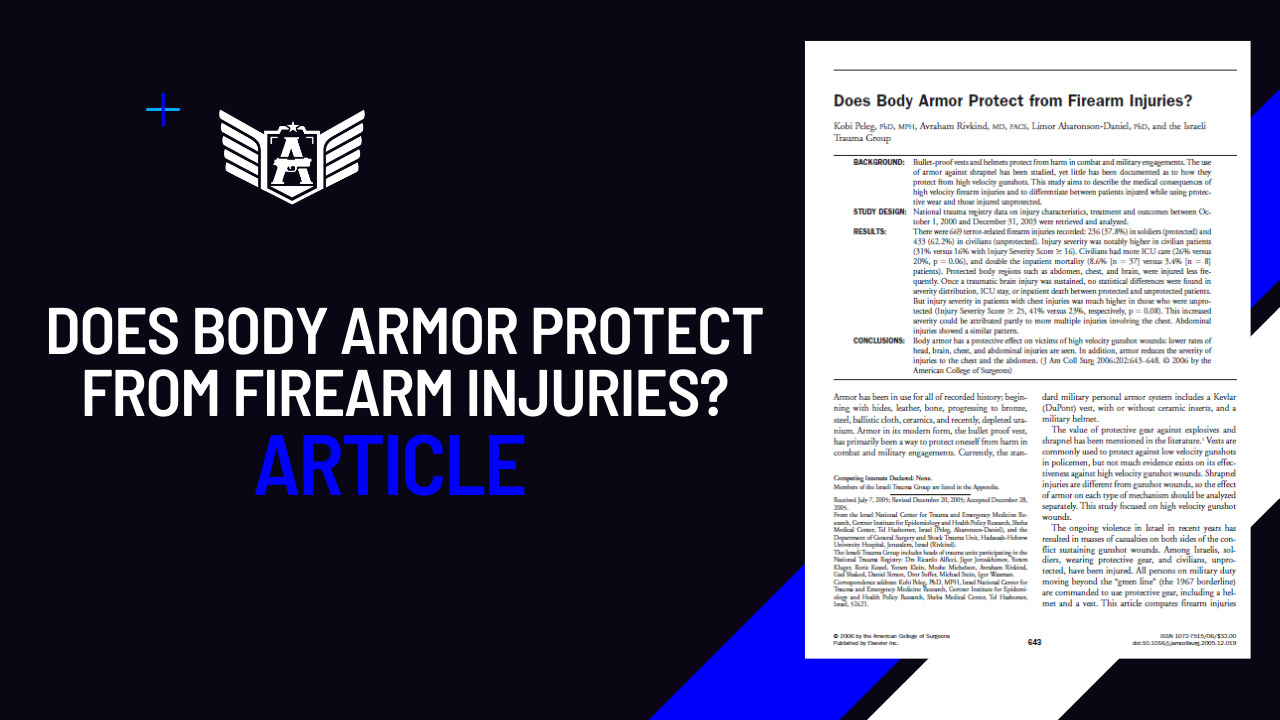J. B. Deijen, C. J. E. Wientjes, H. F. M. Vullinghs, P. A. Cloin1, and J. J. Langefeld authored the article titled “Tyrosine Improves Cognitive Performance and Reduces Blood Pressure in Cadets after One Week of a Combat Training Course,” which was published in the Brain Research Bulletin in 1999.
In this exploration, the authors delve into the intricate interplay between psychosocial and physical stress and its impact on the release of norepinephrine (NE) and dopamine (DA) within both peripheral and central nervous systems. They elucidate the mechanisms underlying stress-induced modulation of noradrenergic neurons in the locus coeruleus (LC), emphasizing their pivotal role in attention, alertness, and emotional regulation. Moreover, they discuss the potential stress-alleviating effects of L-tyrosine supplementation, supported by laboratory findings demonstrating its ability to bolster NE synthesis and prevent stress-induced NE depletion. Their study, centered on the cognitive performance of cadets navigating a rigorous combat training regimen, seeks to ascertain whether administering L-tyrosine could ameliorate stress-induced impairments in cognition, psychomotor skills, and mood, while potentially reducing blood pressure.
Thirty-two cadets from the Royal Military Academy volunteered to participate, with sixteen randomly assigned to a tyrosine group and the other sixteen to a placebo group. However, due to injuries, the number of subjects decreased to twenty-one, with ten in the tyrosine group and eleven in the placebo group. The participants, aged between 18 and 27 years, underwent various computer tasks and mood questionnaires. Before commencement, all cadets received information about the study, and written consent was obtained. Each participant received $30 as an incentive. The study protocol was approved by the Medical Ethical Committee of the Free University Hospital.

For the computer tasks, eight personal computer systems were utilized, equipped with necessary apparatus for data collection. The subjects performed tasks such as the Memory Comparison Task (MCT), Tracking Task (TT), Continuous Memory Task (CMT), and Double Task (DT). Additionally, mood questionnaires, including the Profile of Mood States (POMS) and the State-Trait Anxiety Inventory (STAI), were administered. Prior to the combat training course, all participants practiced the tasks, and the pretest was conducted a week before the course. During the course, subjects received either tyrosine or placebo drinks daily for five days, with compliance ensured through controlled ingestion. The posttest was conducted on day six, assessing cognitive performance, blood pressure, and urine samples for NE metabolite analysis. The combat training course aimed to induce physical and psychological stress, contributing to the study’s context. Statistical analyses were performed to evaluate differences between the placebo and tyrosine groups across various measures, with one-tailed tests conducted based on previous findings suggesting potential effects of tyrosine supplementation.

In the perceptual-motor tasks, significant differences were observed between the tyrosine and placebo groups. The tyrosine group exhibited a higher number of correct responses on the Memory Comparison Task (MCT) at the posttest compared to the placebo group (F(1,18) = 4.11, p < 0.05). Similarly, the RMS tracking score on the Tracking Task (TT) was better for the tyrosine group at the posttest (F(1,18) = 6.14, p < 0.05). Analysis of the TT intervals showed an interaction between Groups and Intervals, indicating an increasingly better performance in the tyrosine group over time. Additionally, the tyrosine group had a lower task-interruption time during the posttest, suggesting fewer lapses of attention compared to the placebo group (F(1,18) = 5.10, p < 0.05). However, no significant differences were found in the Double Task (DT) between the two groups.

Regarding questionnaires, no significant group differences were observed in the scores on the Profile of Mood States (POMS) scales or the State-Trait Anxiety Inventory (STAI) at the posttest. However, significant changes across test days were noted, regardless of group differences. Specifically, fatigue scores were significantly higher, and vigor scores were lower at the posttest compared to the pretest (p < 0.001). Similarly, tension and anxiety scores were significantly higher at the posttest (p < 0.05). Physiological assessments showed no significant differences in diastolic blood pressure (DBP) between the groups at the posttest. However, the tyrosine group exhibited a lower systolic blood pressure (SBP) compared to the placebo group (see Table 3). Additionally, there were no significant differences in the measurements of metanephrine (MHPG) between the tyrosine and placebo groups at the posttest.
The present findings provide support for the effectiveness of tyrosine supplementation in reducing the cognitive effects of psychosocial stress and fatigue. Specifically, cognitive performance was notably higher in the tyrosine group compared to the placebo group, as evidenced by improved performance on both the Memory Comparison Task (MCT) and the Tracking Task (TT). Moreover, differences between the two groups became more pronounced as the TT progressed, suggesting a cumulative benefit of tyrosine supplementation. Additionally, the placebo group exhibited a higher percentage of time during which subjects were unable to perform the TT, likely due to attentional lapses. These outcomes can be attributed to the mechanism of action of tyrosine, which effectively prevents the depletion of noradrenaline (NA) in the brain.
Deijen, J. ., Wientjes, C. J. ., Vullinghs, H. F. ., Cloin, P. ., & Langefeld, J. . (1999). Tyrosine improves cognitive performance and reduces blood pressure in cadets after one week of a combat training course. Brain Research Bulletin, 48(2), 203–209. doi:10.1016/s0361-9230(98)00163-4




